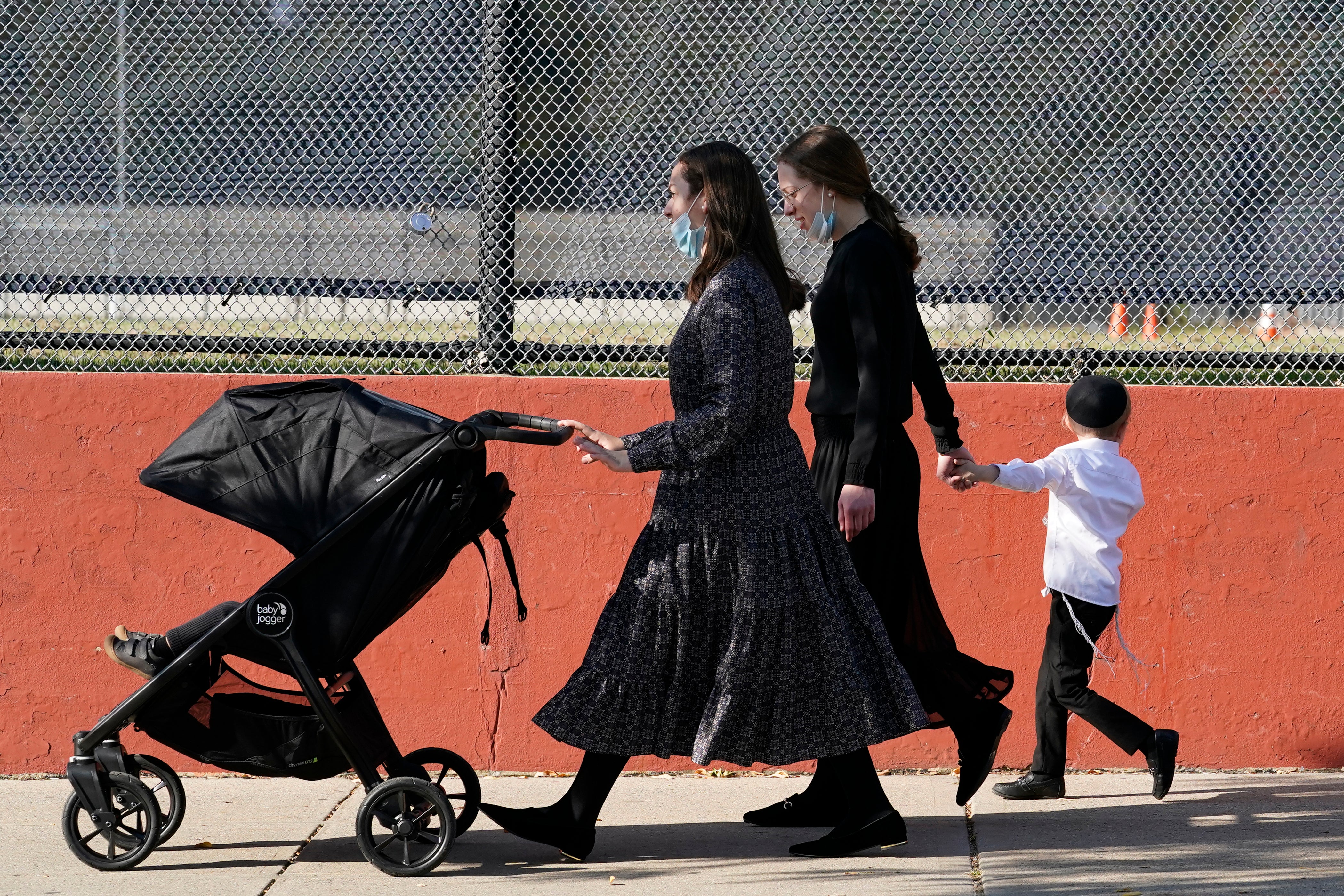This website uses cookies so that we can provide you with the best user experience possible. Cookie information is stored in your browser and performs functions such as recognising you when you return to our website and helping our team to understand which sections of the website you find most interesting and useful.

New Yorkers have been watching in alarm as Covid-19 cases have begun to rise again in the city. In particular, neighborhoods with large Orthodox Jewish populations have seen startling surges in coronavirus cases and test positivity rates in recent weeks, but many community members feel the city is unfairly singling them out.
Tensions rose on Monday when Gov Andrew Cuomo signed an order re-imposing a Covid lockdown that will close schools and nonessential businesses in many Orthodox-dense areas. Mayor Bill de Blasio made the announcement on Sunday, the second day of the Sukkot holiday, when Orthodox Jews do not use electricity and thus would not have got word about the closures until sundown.
Yosef Hershkop, a Hasidic Jew from Brooklyn, told the Associated Press that tensions are high among Orthodox members who say the city has failed to work collaboratively with the community.
"People are very turned off and very burned out," Mr Hershkop said. "It's not like we're the only people in New York getting Covid."
In recent weeks, Mr Cuomo has targeted several ZIP codes, mostly in the city's boroughs of Brooklyn and Queens, where positive tests have risen. In an effort to fend off a second wave of infections, the city is sending out mobile-testing units to those hotspots, as well as contact tracers and city employees who will distribute masks. Mr Cuomo said it's clear the hotspots "overlap with large Orthodox Jewish communities."
"That is a fact," Mr Cuomo said last week. "This is a public health concern for their community. It's also a public health concern for surrounding communities. I've said from day one, these public-health rules apply to every religion, atheists — it just applies to every citizen of the state of New York, period."
Still, the emphasis on the Orthodox communities has angered many of its members, who believe they're being targeted with restrictions that aren't being forced elsewhere in the city.
David Ben Hooren, publisher of The Jewish Voice, told the AP, "The Jewish community feels they're being singled out and there's some element of antisemitism. Not that I agree with it, but that's the sentiment in the street. Tensions are running high."
That sentiment is nothing new — Monday's lockdown order is just the latest in a string of incidents that have frayed the relationship between the NYC Orthodox community and their local government. Last year, Mr de Blasio angered residents when he ordered measles vaccines after an outbreak in Orthodox Jewish communities. And in April, he criticised the Jewish community after thousands of Orthodox Jews attended a funeral for a rabbi who died of Covid-19. The mayor apologised the next day, but some people accused him of a double standard after he supported large gatherings held in support of the Black Lives Matter movement.
Addressing the new closures in a tweet on Sunday, Mr de Blasio said, "We're providing these areas with additional resources, but when presented with new information, we must act. We won't risk the progress we've made."
Meanwhile, Mr Cuomo reiterated his plan to stop large gatherings — including religious ones across all faiths — during a briefing on Monday. The governor said he planned to meet with Orthodox leaders this week to "see if they will agree to live by the rules," which he acknowledged was an uncomfortable conversation to have.
"You're dealing with government saying to religions, 'You shouldn't have more than X people in your church or your mosque or your temple.' That's a politically uncomfortable situation. I have to say to the Orthodox community tomorrow, 'If you’re not willing to live with these rules, then I'm going to close the synagogues’."
He continued, "I have had a 30-year relationship with the Orthodox community. I have a very close personal relationship with them. This is the last thing I want to do. Forget the politics, I don't care about that anymore. Personally, I don't want to have this conversation. It's a difficult conversation. And you're right on the line of government intrusion on religion. So it's hard."



 Africana55 Radio
Africana55 Radio 
